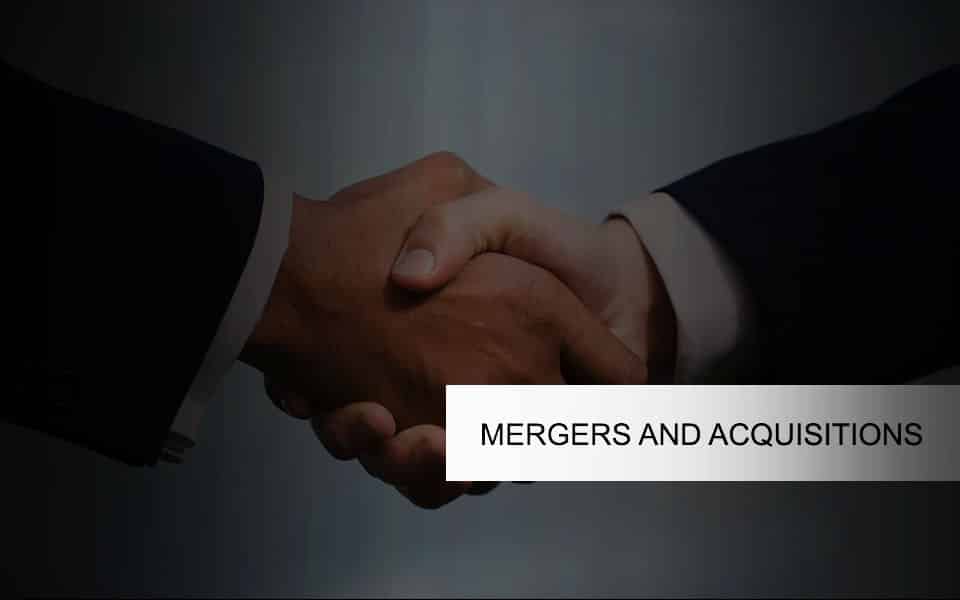The challenges CEOs face in getting the people side of M&A right

Even the most experienced CEO will find merging workforces from different organisations, which may have dissimilar goals, cultures and products a challenge.
Law firm Allen & Overy recently highlighted that in spite of the planning that goes into preparing an M&A transaction, as few as 20% of deals achieve the benefits a buyer expected. It suggested the main reason for this is the lack of awareness that goes into managing and planning the complex HR and employment issues involved in two companies coming together.
In most post-merger situations companies will typically only have records about the training and development employees have undertaken, as well as historical appraisal information.
Most won’t have accurate, up to date information about people’s competence, their (likely & observed) behaviour, confidence and attitude and how well they actually perform in their role. They also are unlikely to have data outlining what aspects of their roles people don’t understand or where their skills gaps lie and what their specific development requirements might be. Such information is vital when the merging organisations work in sectors such as banking and financial services, retail, call centres or rail where people can have a significant impact on reputation, compliance or operational effectiveness.
Over the last 20 years, we have evidenced through our insight and analytics that typically 30% of a workforce misunderstands some aspect of their role and continuously makes the wrong decisions because they are confident they are actually right. A rapid identification of these high risk people issues in the early days (ideally before merging) is critical to minimise risks and to build a picture of the accepted behaviours and cultures across the organisation.
We also know through our insight and analytics that a further 50% of people have specific gaps in their knowledge, but organisations typically don’t know what these gaps are so cannot remediate them effectively through training and intervention.
Without this kind of accurate information, how can HR ensure that people are in the right roles, and have the right skills and capabilities to perform those roles effectively?
It is also impossible for managers to make informed, evidenced based decisions about how best to use their workforce talent and skills, to develop people in a way that fulfils their potential or to be confident that they are making the right decisions if any rationalisation of staff is needed.
In these situations, a good first step is for HR to invest in an initial diagnostic that will provide a baseline of likely behaviours, confidence and understanding against each specific role or function.
This will uncover what people truly understand, how confident they are in their knowledge and how they are applying their knowledge at work. Crucially, the results will provide people-centred data that shines a lens on the talent and current cultural trends – clearly evidencing competence, but also areas for development and areas of risk – where people may have significantly high confidence and low competence.
Managers will be able to see at a glance their top performers and those in need of development and support, and their specific training needs. Companies can provide personalised and cost effective learning tailored to individuals rather than a one-size fits all approach to training which is costly and can be ineffective.
It’s not just acquirers who will benefit from this kind of data. If a company hopes to attract a potential buyer – the ability to audit the competence, capability and compliance of staff and demonstrate the value of a workforce in real time will make them a more attractive proposition.
Whether a company is buying or selling, having clear people-centred data of the workforce, will underpin the success of an M&A process.
KPMG supports this view. Tim Payne, Head of KPMG’s People and Change Practice said: “Particularly when acquiring businesses with high risk or highly regulated activities, acquiring managers need to get comfortable that what they’ve bought is safe, quickly. Cognisco’s approach allows a rapid identification of high risk people issues, which is why we work with them across many areas of business change.”
It’s clear that all companies going through an M&A transaction will have one thing in common in determining a successful outcome, whether they are being acquired or looking to be acquired, and that’s proving the value of their people. Only by having people-centred data can they accurately evidence this and make themselves a more appealing proposition.
—————————————
Have you read?
10 Of The World’s Most Powerful Women In 2016, AFP News Agency Revealed
European study reveals C-suite priorities for business growth and executive development
Wealth Rankings: These Are The Top 25 Richest Billionaires In Technology, 2016
5 characteristics of true entrepreneurs
Written by: Mary J Clarke, Chief Executive Officer at Cognisco.
Add CEOWORLD magazine to your Google News feed.
Follow CEOWORLD magazine headlines on: Google News, LinkedIn, Twitter, and Facebook.
This report/news/ranking/statistics has been prepared only for general guidance on matters of interest and does not constitute professional advice. You should not act upon the information contained in this publication without obtaining specific professional advice. No representation or warranty (express or implied) is given as to the accuracy or completeness of the information contained in this publication, and, to the extent permitted by law, CEOWORLD magazine does not accept or assume any liability, responsibility or duty of care for any consequences of you or anyone else acting, or refraining to act, in reliance on the information contained in this publication or for any decision based on it.
Copyright 2024 The CEOWORLD magazine. All rights reserved. This material (and any extract from it) must not be copied, redistributed or placed on any website, without CEOWORLD magazine' prior written consent. For media queries, please contact: info@ceoworld.biz
SUBSCRIBE NEWSLETTER








